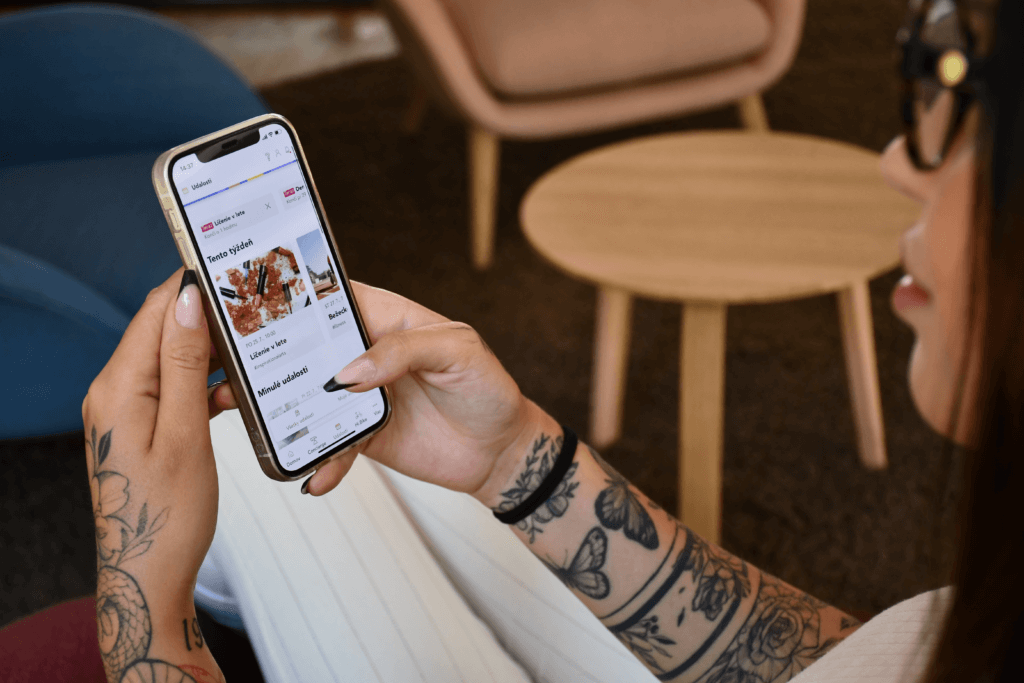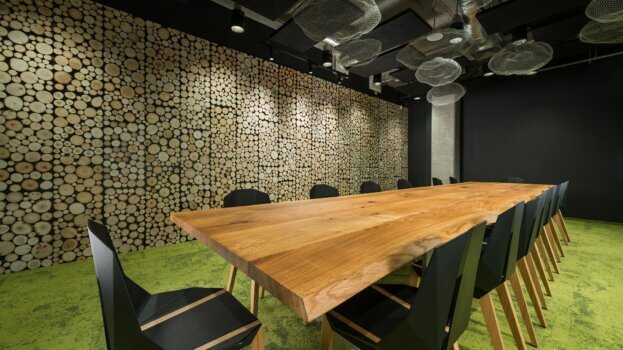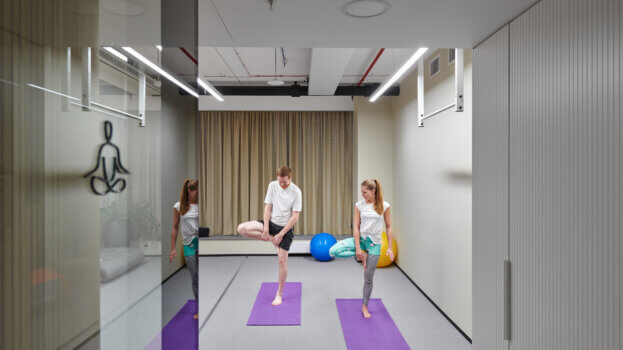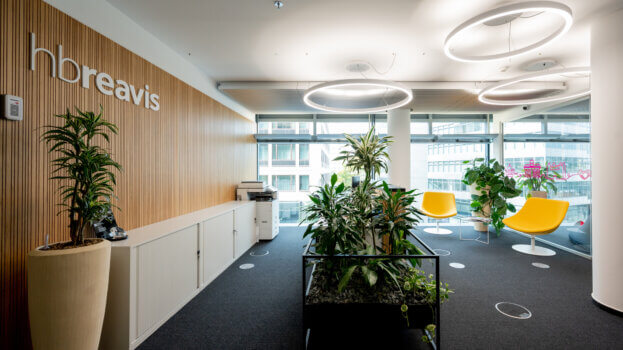A Flexible Office Fit Out
Whether you’re about to embark on an office floor planning project or simply want to know if your setup’s right – it helps to think objectively about your current workplace design.
Obviously, this is something the Origameo workplace consultancy team can help with. But to give you some food for thought, consider this: employees are more likely to remain with their employer if they have access to flexible, mobile and remote working practices (source).
Why? Because they can complete tasks at greater speeds and be more productive – they essentially enjoy greater success on a day-to-day basis.
So, does your business deliver the support they need? Here’s a checklist to see how your workplace matches up to the latest workplace designs and trends.
1. Customization
Personal control over a working environment can be crucial in helping employees feel comfortable and at home. Where possible, give colleagues the freedom to make their mark on workspaces and have a say on the interior and exterior design – from photos and trinkets on desks, to the style of the office kitchen or lobby.

You can see an employee booking a flexible workstation. A flexible workplace is a workplace that allows employees to adjust it to their needs.
2. Task-based zones
When designing an office fit out, it is important to assess the types of tasks that your employees do and create tailored areas around them. Foremost, encourage colleagues to make use of multiple spaces – to move around as they get different kinds of tasks done. Provide them with:
- Various sizes of workspaces that help different groups to come together and collaborate
- Ultra-long horizontal work surfaces to allow colleagues to assess work in bulk
- Vertical work surfaces to support project management workflows and help teams analyse, explore and innovate
- Project-specific spaces that can evolve over time to reflect the lifecycle of the initiative
- Quiet spaces where people can work in solitude and focus on a specific task
3. Non-office-based working
Modern businesses – almost as a standard – encourage employees to work in ways that suit them best. That includes flexible options like taking work outside your office fit out to make sure they not only feel comfortable working from home, but also from a park bench or a local coffee shop. Basically, wherever they’re the most productive.
4. Technology
Whether in the office or on the go, it’s important employees have flexible technology to stay connected to both their work and colleagues. Hardware is a great starting point – powerful smartphones and laptops will help them work at the expected pace. However, it’s often the applications that give you an edge. If your cloud-based services and video conference facilities are a breed apart, your people will operate far more efficiently.
5. Adaptable office fit outs
Forward-thinking is key to your flexible workplace strategy. Think about how your layout could pivot to different requirements, from supporting new hires and setting aside private areas where client confidentiality is paramount, to more project-specific zones where teams can create a more unique ambience to suit their processes.
6. Sharing your office fit out
With hybrid working now so common, many employers are reviewing just how much they need their own exclusive office fit out. In particular, the creative and light manufacturing sectors are looking at flexible ways to share facilities – such as machinery, the Internet, office space, support staff and retail space – to reduce capital investment and increase their agility, especially in the first few years of business.

Inspired?
Get more out of the money you’ve invested in your office: create a workplace that empowers your people (and encourages them to stay). Book a free consultation with Barbora Karasova, our workplace consultant.
Sources & about the authors
Information in this article is based on our Space & Experience Toolkit – our internal research database. The article was written by Christopher Svitok.


